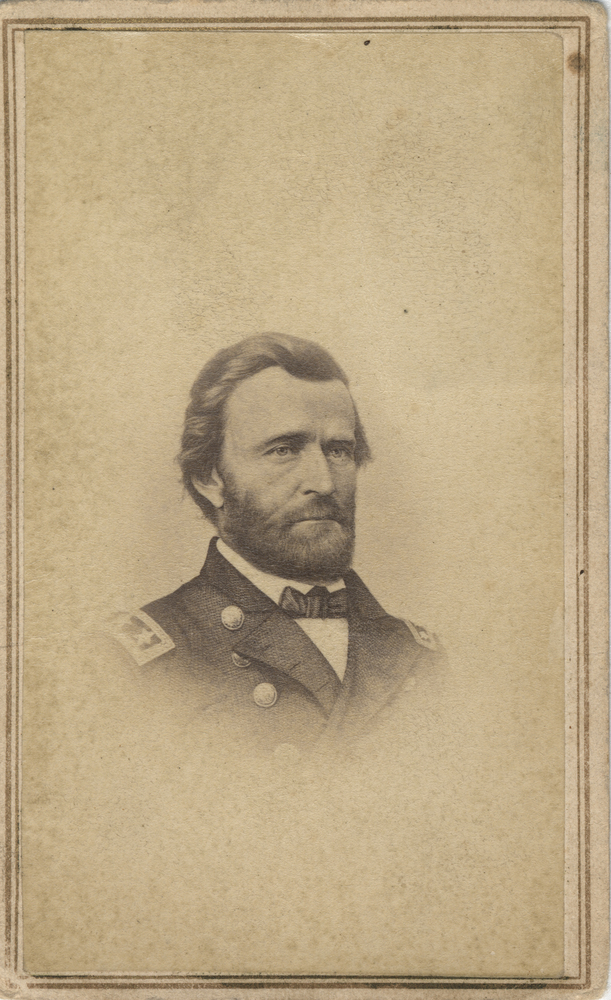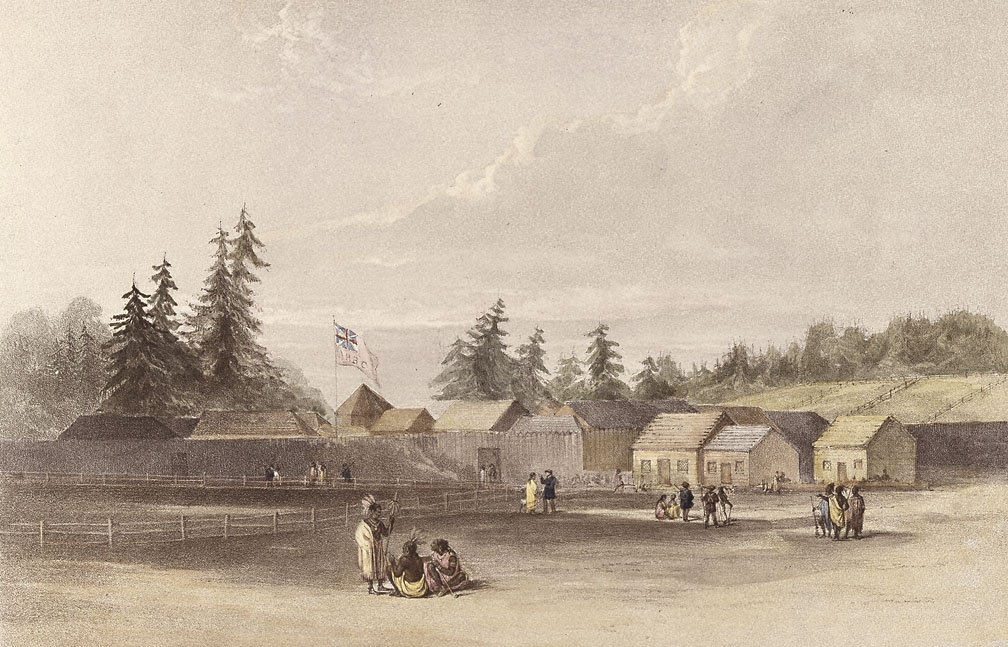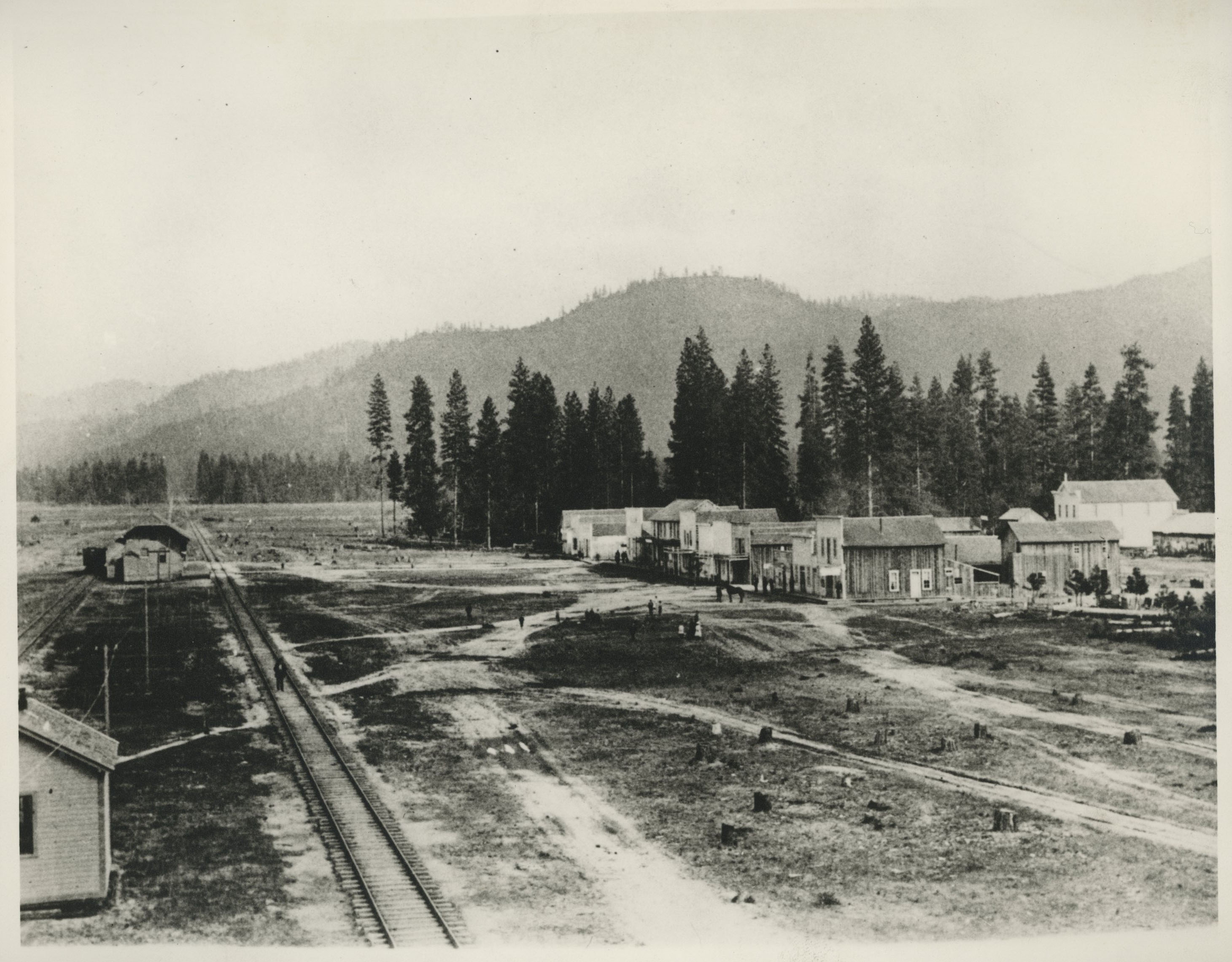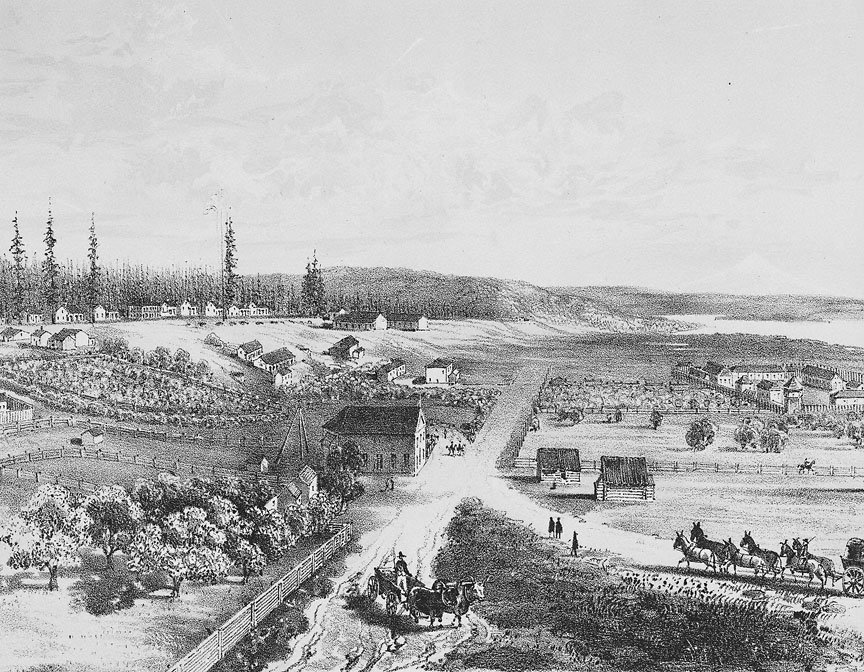Ulysses S. Grant, a native of Ohio, graduated from the U.S. Military Academy in 1843 and embarked on a career in the U.S. Army, rising to the rank of general-in-chief for the United States during the Civil War. Grant effectively parlayed his wartime fame into political office and was elected the eighteenth president of the United States in 1868, serving two terms.
Grant's association with Oregon began in 1852, when the steamer Columbia brought him and several units of the Fourth U.S. Infantry to Columbia Barracks (in today's Vancouver, Washington) in the Oregon Territory. In a matter of months, the territory was divided and the post was renamed Fort Vancouver, Washington Territory.
Grant was taken with the area and entertained plans to relocate his family, his wife Julia and son Frederick. "I have no doubt but I shall like Oregon very much," he wrote Julia after his arrival.
At Fort Vancouver, Grant served as the regimental quartermaster for the Fourth U.S. Infantry and later added the role of post and depot quartermaster. In this capacity, he outfitted seminal expeditions that explored and mapped much of the Pacific Northwest, including several for the Pacific Railroad Surveying Party led by Governor Isaac Stevens of Washington Territory. Grant's work brought him into occasional contact with Native peoples, and his experience in Oregon and Washington territories helped foster an understanding that stood in contrast to much thinking of the era. "It is really my opinin [sic]," he wrote from the fort, "that the whole [Indian] race would be harmless and peaceable if they were not put upon by the whites."
Grant invested in a number of private enterprises, planning on using the returns to bring his family to Oregon. He invested $1,500 in a mercantile enterprise with an old acquaintance, who then departed with the profits and much of the capital. Grant leased a 100-acre farm about a mile from the post, where he and several fellow officers grew potatoes, onions, corn, barley, and oats in early 1853. He happily reported that he had planted every grain with his own hands. In June, however, a Columbia River freshet flooded the farm, ruining his crop and his chances for an additional business of supplying firewood for Columbia River steamboats. Subsequent ventures—involving hogs, chickens, and ice—also failed, but these setbacks did little to discourage Grant's interest in the area. "The fact is my dear wife," he wrote Julia, "that if you and our little boys were here I should not want to leave here for some years to come. My fears now however are that I may be promoted to some company away from here before I am ready to go."
In August 1853, Secretary of War Jefferson Davis—who would become the president of the Confederate States of America—officially notified Grant that he had been promoted to captain and reassigned to Fort Humboldt, California. He left Vancouver in September 1853, returning in November to close out several remaining contracts, including one with the Hudson's Bay Company's Peter Skene Ogden. At Fort Humboldt, Grant sank into a depression that resulted in his resignation from the service.
It was not until twenty-seven years later, after two terms as U.S. president, that Grant realized his wish to bring his family to Oregon. On October 13, 1879, the steamer St. Paul brought Grant, his wife and son, and a number of friends on a short but highly publicized visit to Oregon and Washington Territory. Although he would not return again to Oregon, Grant's name is still connected to the state, with a county, city, high school, and numerous city streets bearing his name.
-
![]()
Ulysses S. Grant as a military officer.
Related Entries
-
![Fort Vancouver]()
Fort Vancouver
Fort Vancouver, a British fur trading post built in 1824 to optimize th…
-
![Grants Pass]()
Grants Pass
Located on the Rogue River about thirty miles northwest of Medford, Gra…
-
![Hudson's Bay Company]()
Hudson's Bay Company
Although a late arrival to the Oregon Country fur trade, for nearly two…
Related Historical Records
Map This on the Oregon History WayFinder
The Oregon History Wayfinder is an interactive map that identifies significant places, people, and events in Oregon history.
Further Reading
Grant, Ulysses S. The Papers of Ulysses S. Grant, 1837-1861. Vol. 1. Edited by John Y. Simon. Carbondale: Southern Illinois University Press, 1967.
Lewis, Lloyd. Captain Sam Grant. Boston: Little, Brown, 1950.
Lewis, William S. "Reminiscences of Delia B. Sheffield." Washington Historical Quarterly 15 no. 1 (January 1924): 49-62.
McFeely, William S. Grant: A Biography. New York: W.W. Norton, 1981.




